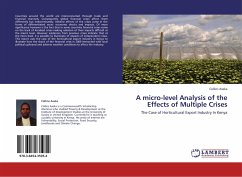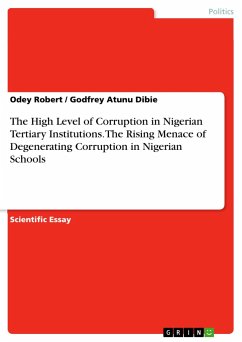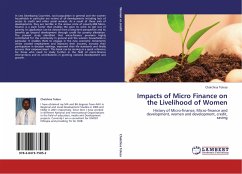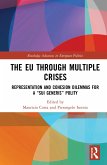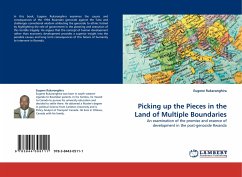Countries around the world are interconnected through trade and financial channels. Consequently global financial crises affect them differently but indiscriminately. Adverse effects of the crises come in the forms of differentiated socio- economic shocks and impacts. Of more significance however is the fact that in some countries financial crises come on the back of localised crises making isolation of their impacts difficult at the macro level. However evidences from previous crises indicate that at the micro-level, it is possible to illuminate of impacts of independent crises. This report uses the case of the horticultural export industry in Kenya to illustrate how the shock of the financial crisis in 2009 interacted with local political upheaval and adverse weather conditions to affect the industry.
Hinweis: Dieser Artikel kann nur an eine deutsche Lieferadresse ausgeliefert werden.
Hinweis: Dieser Artikel kann nur an eine deutsche Lieferadresse ausgeliefert werden.

